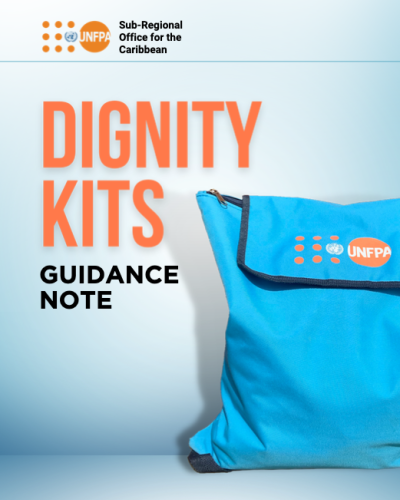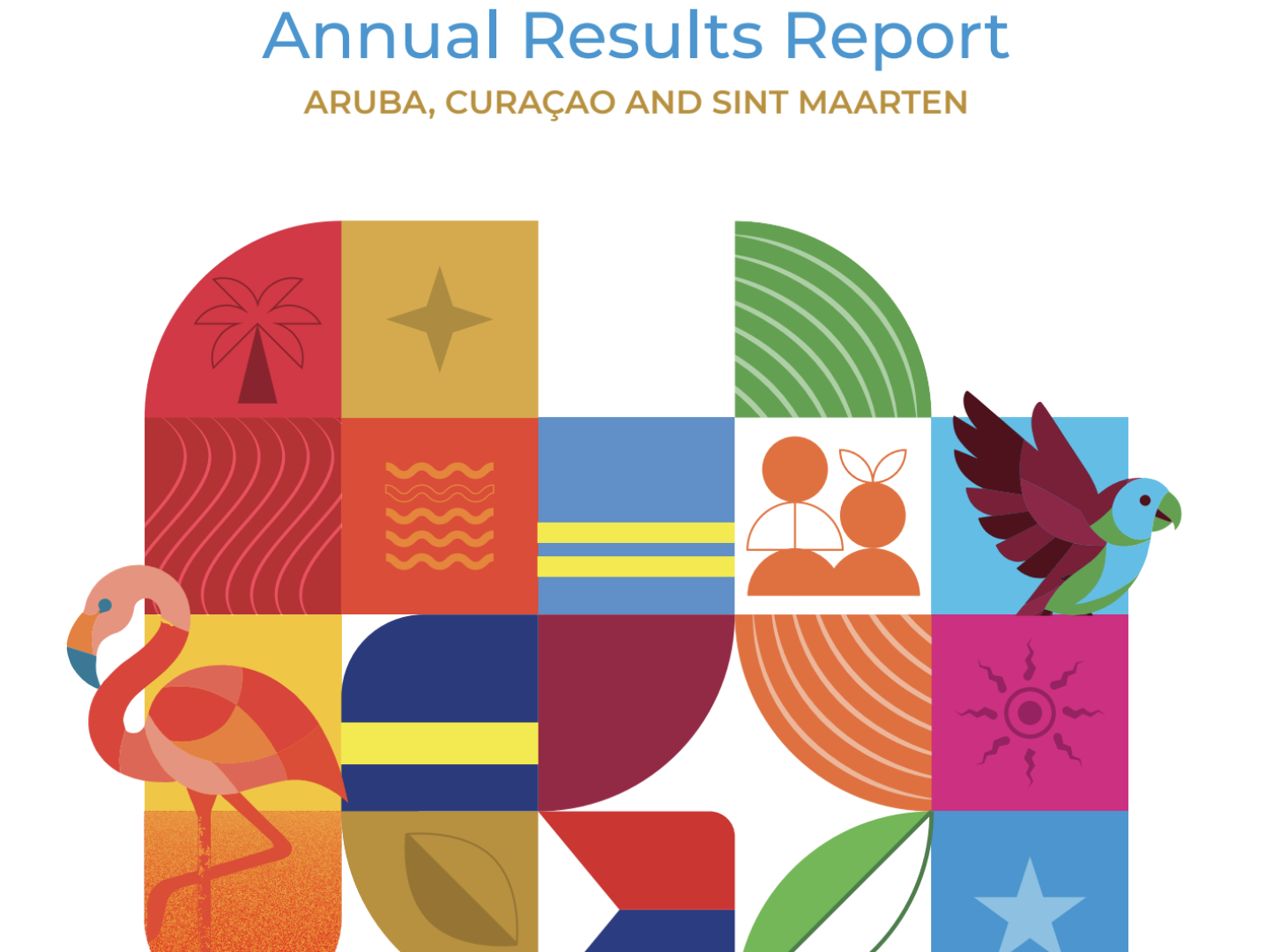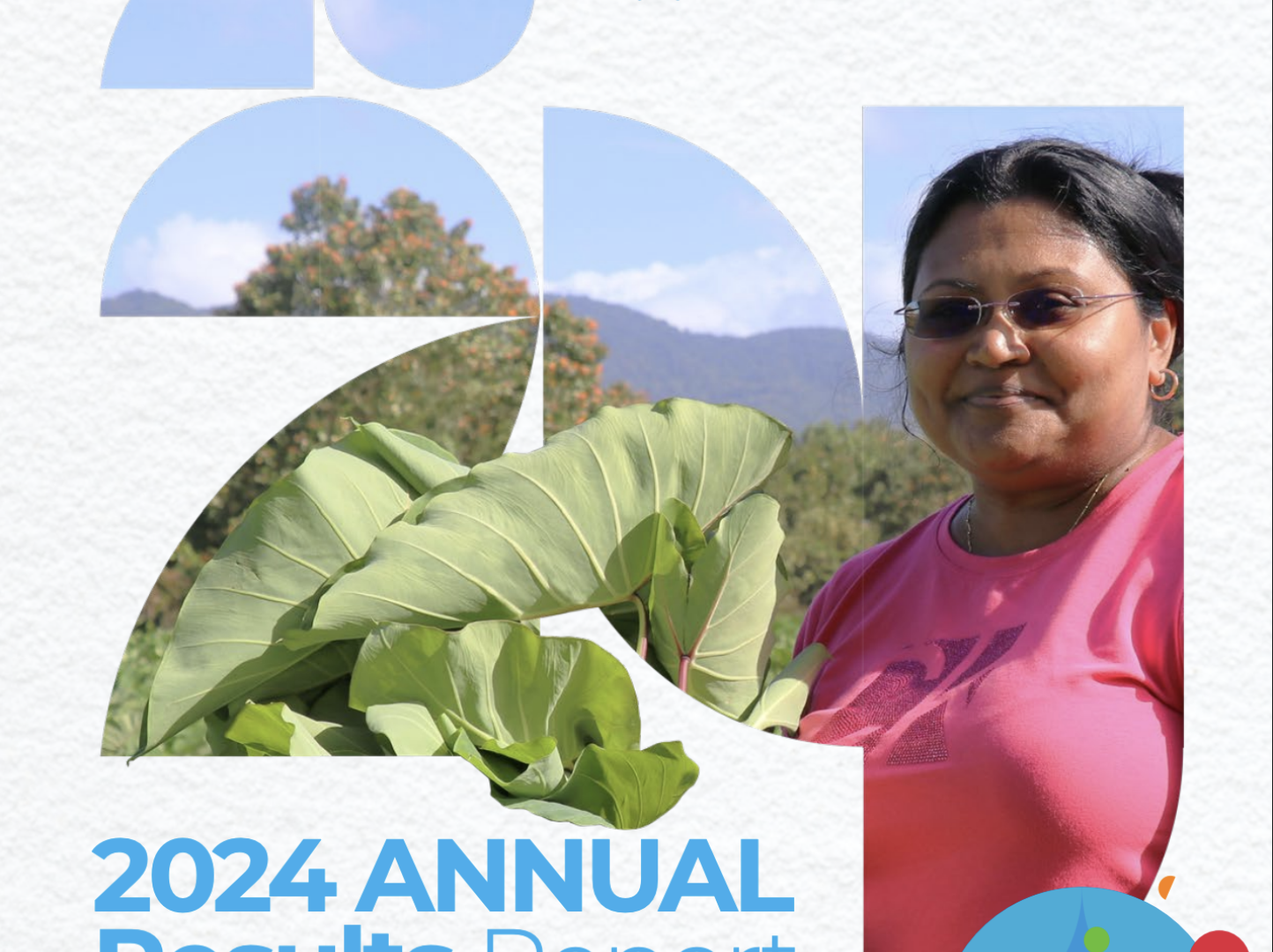UNFPA Caribbean Dignity Kits Guidance Note

In the aftermath of a disaster or during a chronic humanitarian crisis, women and girls need basic items to interact comfortably and safely in public. They also need access to personal hygiene, particularly menstrual health items. Without access to culturally appropriate clothing and hygiene items, the mobility of women and girls is restricted. Without certain items, women and girls may be unable to seek basic services, including humanitarian aid, which may increase their vulnerability to gender-based violence (GBV). Their health and safety can also be compromised.
The English and Dutch Speaking Caribbean is prone to natural disasters, including but not limited to hurricanes, volcanic eruptions, earthquakes, flooding, and landslides. Historically and with a significant increase in the latter years, human displacement, migration and refugee influxes are occurring more often, mainly due to political and economical instability in home countries (e.g. Haiti, Venezuela), but also related to the direct effects of climate change, which is dramatically affecting the region. These humanitarian emergencies massively increase existing vulnerabilities, and place individuals at higher risks of experiencing all forms of GBV. In addition, following a humanitarian emergency, lifesaving services might have been disrupted, preventing survivors of GBV from accessing key information and from being referred to specialised protection and support services.
Dignity Kits are thought to be a resource to support meeting the above-mentioned needs, where women and girls can receive essential supplies, such as menstrual health products (disposable/reusable sanitary pads, menstrual cups, menstrual discs), condoms, underwear, soap, shampoo, toothpaste, relevant clothing items, etc. They also contain items that can contribute to increasing safety and security, such as radios, whistles, flashlights, and buckets/bags. Additionally, lifesaving information about services available for them, where to access them and how, especially related to the response to GBV and access to sexual and reproductive health (SRH) services. The provision of Dignity Kits contributes to survival in the immediate aftermath of an emergency and supports women and girls in using their limited resources to purchase other critical items. Additionally, they contribute to recovery efforts by engaging women and girls in economic empowerment activities.





